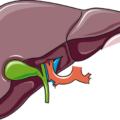My radiologist had actually become my primary doctor, as the oncologist remained largely unavailable to me, especially so after hearing the news that my health insurance would lapse within the coming months. The oncologist increased my dosage of radiation, and rescheduled my GI, endoscopy, and radiology follow-up exams to earlier dates. The radiation office not only waived a significant portion of their own service fees for me due to the situation, but also helped us to handle a big part of the lengthy medical dispute we were facing with our insurance company. They eradicated most of the tumor, but could not remove my residual scar tissue, before our COBRA expired. Even with all that they had done for us up until then, there were still strict systematic limits as to what they were permitted to do for us after that time. Not only was I without insurance yet again (my husband was too), but I was also now without the support system that had been my radiologist and their crew—something that was much much harder to overcome than I had expected it to be.
I was in remission, but back to square one as far as access to medical coverage went. I was in remission, but I had undergone medically-induced premature ovarian failure, and was deemed post-menopausal before I would even reach my thirties. I was in remission, but couldn’t take hormone replacement therapy or herbal alternatives, because I was already at increased risk for recurring and/or second cancers. I was in remission, but had semi-permanent radiation scars and temporary post-chemotherapy cognitive impairment. I was in remission, but I still wasn’t well enough to return to work, go to school full-time, or to take a belated and long overdue honeymoon yet. I was in remission, but I was depressed, and didn’t know how to move forward without the regular group of doctors and nurses who had been there for me emotionally only a week before.
Why was my life saved (and through such extreme measures), only to be put right back at risk, through the ever-incipient denial of insurance, medical assistance, and access to healthcare? What was the point of it all?? It felt like maybe I shouldn’t have been striving so hard to live, but instead perhaps that I should simply have accepted the inevitability of my own death (something I am now faced with every day that I do wake up in the morning, anyways). My husband had only been able to find part-time jobs, since his old workplace had closed. So, we knew that we would have to move out-of-state to get the help that we needed. We just hadn’t anticipated that it would be even harder to get coverage, aid, or access, once we left. And, we still don’t know how much harder it will get, as we continue to race border-state budget cuts and residency requirements, just trying to keep me alive. Sometimes, it’s hard not to doubt that we’ll make it in time at all.
I have always worked hard, and I’ve always tried to give back to the community. I was glad to pay my dues, and happy to put in my time. So, I have an exceptionally hard time understanding how so many have come to turn their backs on me as I ask them to help keep me from dying, if not from hurting, particularly when that’s supposed to be their job. How come I’m not worth your time and attention? Why don’t I deserve to live? What’s so wrong with me, that you can’t even tell me what’s wrong with me?
I wish that I could leave you with a happier ending, but this never-ending vicious cycle has not left us with much optimism, hope, or spare change, ourselves. Aside from knowing that my tumor is back, we don’t know just how bad it is. What we are gravely aware of is that I am out of the safety net and into the danger zone for lymph and bone involvement plus metastatic cancer growth. It’s proven impossible to get a standard colonoscopy and biopsy at my age (twenty-plus years too young) without a doctor’s order, and impossible to get a doctor’s order without insurance or assistance (but, you’ve already heard that story before). …all this, even in spite of my personal history of colon cancer… And, it will be equally impossible to get any traditional treatment if/when the cancer spreads to my liver or lungs, too. But, at least nobody will be talking about colostomy bags then, anymore. When we do find the rare body scanning clinic that will take cash patients on self-referral, they all also inevitable deny me the less-invasive virtual colonoscopy because I’m “still in my childbearing years” even though I’m medically documented as being POF, and haven’t had a period in over six years now. You’d think it would be a non-issue, but for some reason it isn’t. Maybe someone out there can understand our fear and despair, but a lot of other people just don’t seem to care.
I wrote my story anonymously because I fear the social repercussions and potential backlash of publicly revealing my real name in association with my disease and disorders. I am uninsured and told by many, uninsurable.



























